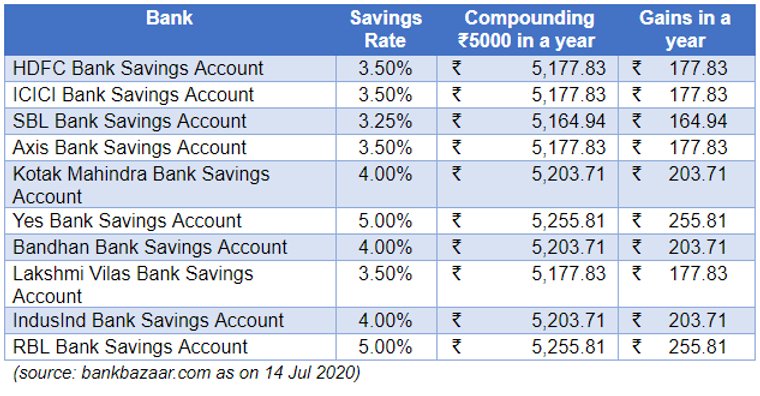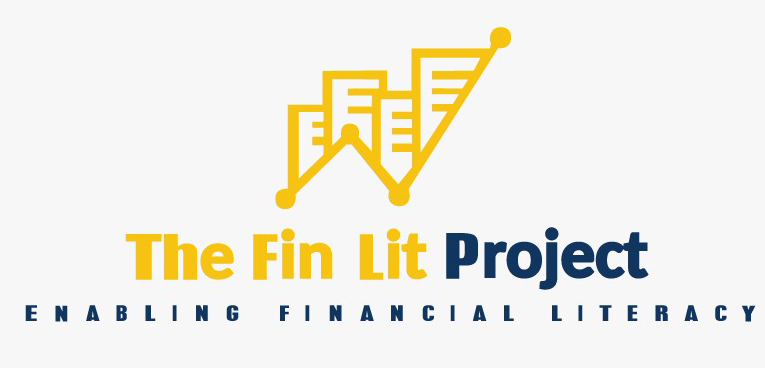
DeMAT is short for Dematerialized Account. You open and operate a DeMat Account in India to hold financial instruments (both debt and equity). In addition, you can also keep all your mutual fund investments in a dematerialized form in a Demat account without the help of an additional agent. IRDAI has also allowed insurances to be held in a Demat account in electronic form from 2011 onwards. This has been done so as to reduce transaction costs and ensure swift modification in insurance policies.
Now why should you consider a DeMat Account? Assuming you can save approximately ₹6000 a year, that’s like saving ₹500 a month. An amount you can easily spend if you go to a sweet shop and bought 1 kg of your favourite sweets. Assuming you can control that urge to buy a kilogram of sweets only once a month and you end up saving an amount of ₹6000 a year. What could you do with that extra cash?
Option A: You can let it remain in your savings account and earn a somewhat decent return on your capital. A few examples of returns from these reputed banks are listed below:-

This makes you richer by ₹170 – ₹256 in a year, good enough to buy half a kg of sweets without disturbing your initial corpus. But what if that is is not good enough for your aspirations? As an inquisitive fellow say, you want to explore other options available out there.
As our country has developed, so has its financial system. Post-independence, the system has come of age and there are plethora of options available. There is a formal financial sector under the purview of Ministry of Finance (MoF), RBI, SEBI, IRDAI and other regulatory bodies. Then there is informal sector which consists of individual moneylenders, group of persons operating ‘funds’ or associations, partnership firms, pawnbrokers, non-bank financial intermediaries, investment, chit-fund companies and numerous others.
The only thing to take care of, in this ocean of opportunities is to make informed decisions about the best possible choices that maximize your gain. A comparison of certain products / instruments available in the financial market are tabulated below: –

This is only an indicative list and there are exhaustive numbers of financial instruments available in the market. Point to note here is the negative returns given by NSE and BSE flagship indices which is indicative due to the massive downturn in the market because of
the COVID-19 slump in the economy, massive fall in oil prices and majority of big economies in the world slowing down.
If we compare the performance of these indices over a period of past three to five years, the picture is completely different. Sensex, for example gave a return on investment of 13.71% over the period of past three years and Nifty 50 returned 8.31% during the same timeline. A young investor with a medium risk appetite can therefore consider these options as compared to leaving the money in a savings account or even opting for a bank fixed deposit.
Also, this should not be your entire savings but can always be one small part of it in order to achieve diversification in your investment portfolio.
Now we have come thus far and if you see some consonance in the ideas put forth above, the other question comes is how to go about it? All banks allow you to open DeMAt accounts with them along with various charges. Having a trading account (linked with a DeMat account) allows you to participate in a plethora of options in the secondary market like direct investment in equity and mutual funds directly. We live in an information age with connected ecosystems, smart gadgets, internet of things, FinTech companies and neo banks. In this age you have discount brokers who charge you as low as ₹300 annually for a DeMat account and a linked trading account and are extremely reliable and transparent in their transactions.
So to conclude, if you wish to explore the opportunities and instruments offered by the secondary markets in India, you do need a DeMAT account. This could allow you to get better RoI, diversify your investments and control your risks. If you want to achieve your investment goals with the exposure of the secondary markets, you do need a DeMat account with a linked trading account to achieve your goals. However, do not think of it as a gamble. Do your analysis, be consistent with your research and slowly build your portfolio by becoming financially literate.


